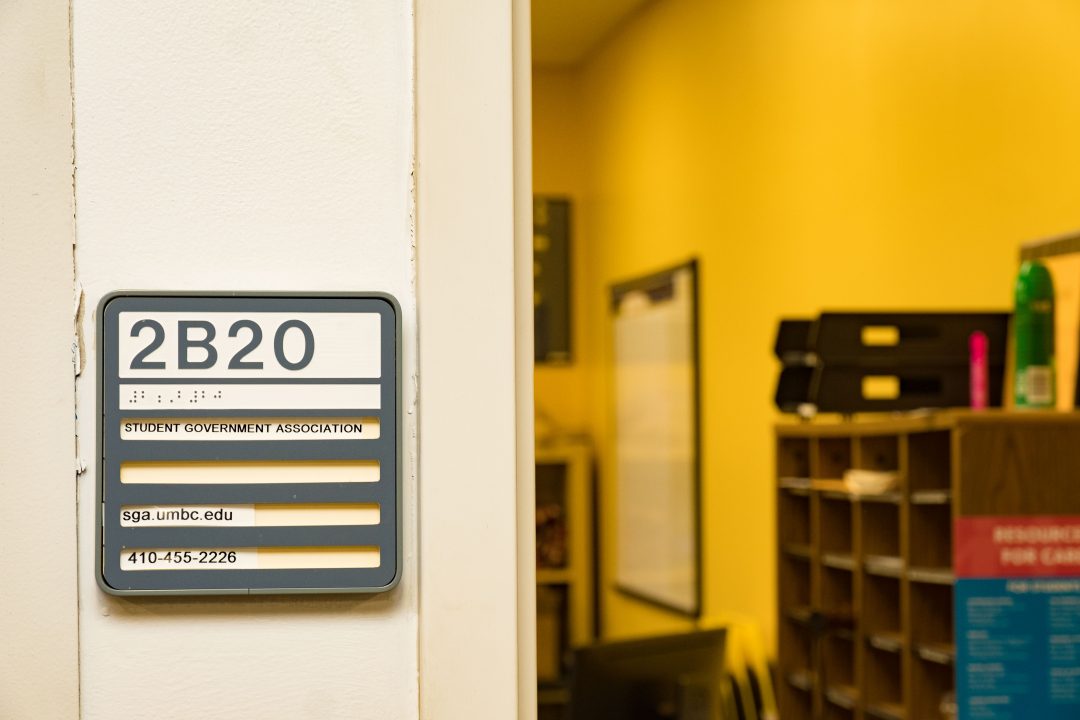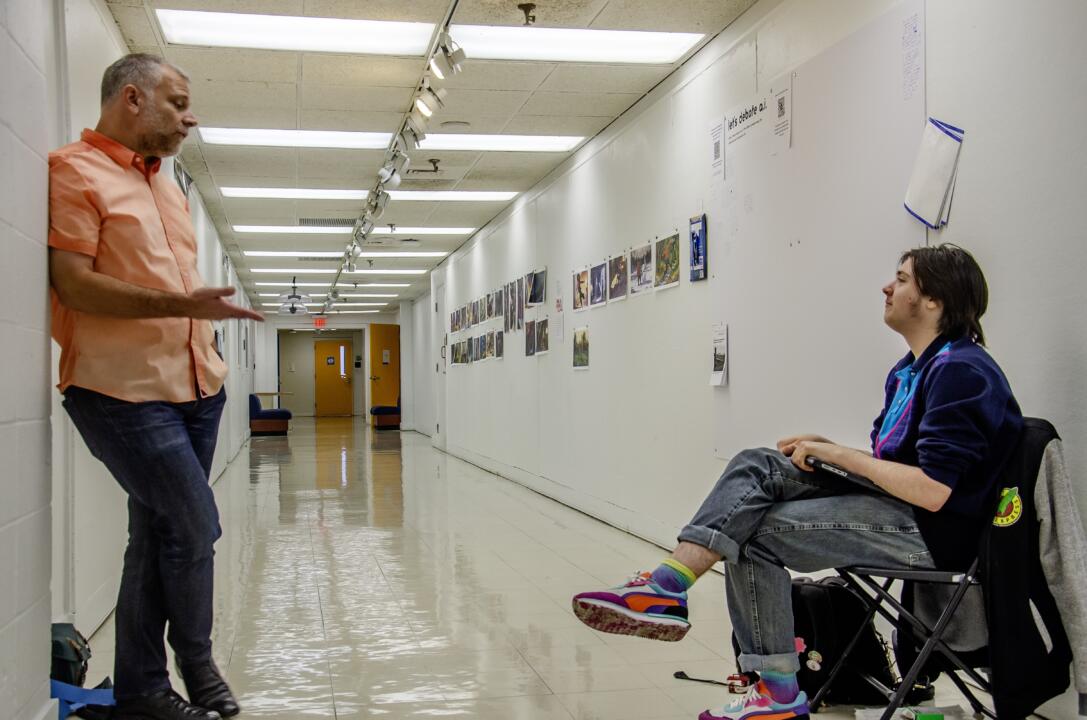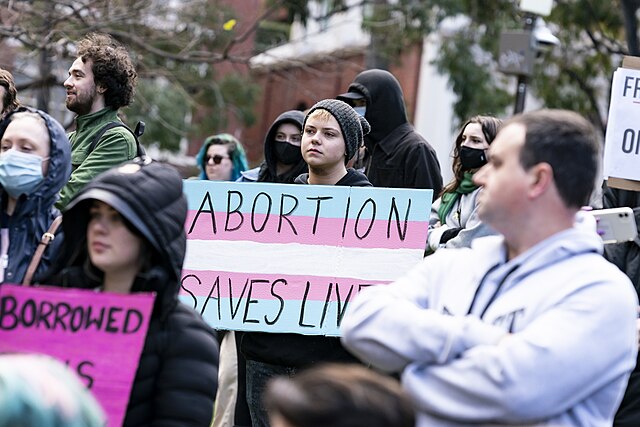Six members of the University of Maryland, Baltimore County’s Student Government Association resigned at the start of the Spring 2020 semester: two senators, a finance board representative, the director of communications, the associate director of community engagement and the president. As a result of these vacancies, SGA officials have spent the first few weeks of the semester trying to find suitable replacements.
When SGA finds itself with vacancies between election seasons, which occur every April, positions are filled by appointment, as laid out in the SGA’s constitution. When an SGA president resigns, the executive vice president takes their place; all other executive branch positions are chosen by the president. In the case of the executive vice president, vice president for student organizations and treasurer positions — all of which are usually elected in the spring — the president’s choices must then be confirmed by the Senate and the Finance Board. All other executive branch positions, which are appointed positions by default, need only be confirmed by the Senate.
Because she stepped into the role of president after the resignation of Vrinda Deshpande, President Frances Watson has had to make several such appointments in her first month as president. To take on her former position as executive vice president, she selected Patrick Reid, a former senator who had not participated in SGA in the fall semester because he was studying abroad.
She talked to a few other candidates before Reid, whom she ultimately chose because she felt that “he had the passion about SGA, that he would be committed, that he would be responsible.” The fact that he had previously been a senator was a huge asset as well. “It would have been really hard to onboard someone” who was not already familiar with the inner workings of SGA, Watson explained.
Watson also had to appoint the new director of communications and assistant director of community engagement. For the former, she selected to promote another member of the SGA’s department of communications: Calista Ogburn, the former coordinator of social media and web design. The search for the latter is still underway.
Filling vacancies in other branches of SGA works somewhat differently. When vacancies arise in the legislative branch, composed of the Senate and Finance Board, appointments are made by the heads of these bodies — the Speaker of the Senate and the Finance Board Chair, respectively. The process for choosing a new senator or finance board representative involves soliciting applications, interviewing applicants and finally, choosing an applicant to be confirmed by the body to which they are being appointed. This semester, the Senate and Finance Board used different methods to solicit applications. The Senate published the application on myUMBC and made it open to all undergraduate students, while the Finance Board invited members of student organization executive boards to apply.
According to Josué Lemus, a junior sociology major and the assistant speaker of the Senate, this method of appointing officials as the need arises is the most practical way to fill vacancies. “Considering how short the semester is, it would be a lot to put up an election,” he said. “[To] set up polling, and all the electronic polling, and then to finally get the results? That alone could take a month or a month and a half.” In contrast, this process has taken just under three weeks. Applications opened on Feb. 6 and closed on Friday, Feb. 14; Lemus and Speaker of the Senate Wangui Nganga began conducting interviews the following Monday; and the confirmation hearing was a week later.
Lemus said he and Nganga have tried to bring on students from populations that are not already represented in the Senate. He also feels that the Senate confirmation hearing, in which the current senators can ask the candidate questions about their involvement on campus and goals with SGA, helps to ensure that Senate selections are being made in the student body’s best interests.
Six resignations in a semester may seem like a significant number, but Candace Martinez-Doane, assistant director of leadership and governance for Campus Life and SGA’s advisor, notes that this is a small portion of the over 50 students SGA employs. To her, these resignations indicate good judgement and self-awareness on the part of the students who resigned: “Their first priority should be to be a student, and there are other priorities that may take precedence [over SGA],” Martinez-Doane said. “I don’t ever bemoan someone for making tough decisions.”
The reasons for this semesters’ vacancies are varied. Former Senator Jared Richard’s resignation comes down to a matter of timing. Along with being a part of SGA, he is also the president of Catholic Retrievers and resigned when he learned that the only time that organization’s executive board could meet was during Senate meetings.
“As president of [Catholic Retrievers], I felt like I had a great responsibility to the organization. On a personal level, I just felt like that was more important to me than what I was doing at SGA,” Richard explained.
As a senator, Richard had been working with the staff and students to figure out how the Interfaith Center, currently a part of the same trailer that houses the Counseling Center, would be transferred into the upcoming health services and counseling building. Though he is no longer working on this project in the capacity of a senator, as the president of a religious organization, he is still able to participate in conversations about the future of the Interfaith Center.
This is fortunate, as there is a chance that no one will be picking up the initiatives that the two senators who resigned were working on. “There is this issue of transition in the SGA,” he said. “Let’s say you were working on something [and it] turns out that there’s a conflict and that project may or may not be completed. Then somebody else comes in and they have their own ideas of what they want to accomplish. It can be difficult to get something very solid done.”
He noted, however, that many senators who join the organization in the spring go on to do great things, even in just their first semester. One such success story is that of Kelechi Onyeaghala, a senior biology major who was appointed to the SGA in spring 2019.
Going into her first semester, Onyeaghala did not know exactly what she wanted to use her time in SGA to accomplish. But after speaking with Richard, who was the speaker of the Senate at the time, she decided to focus on a passion of hers: mental health within communities of color.
“[Richard] really helped me carve out that vision and it was pretty much based on what I was passionate about,” Onyeaghala said. Over the course of that semester, she partnered with the Mosaic Center to create an event entitled “Breaking the Silence” where faculty panelists spoke about mental health within communities of color. She is considering reprising the event this semester.
Watson, too, is an example of a senator who started midyear and was nevertheless able to make waves within the organization. Though she has now risen to the office of president, she recalls her first semester as a senator working to advertise the Career Center’s Traitify app to students. She advised the incoming senators and other SGA officials, whose place she was in a year ago, to focus on keeping open lines of communication with others in the organization and to “[be] patient with yourself … it can be overwhelming to immediately be in a new position.”
For those interested in joining SGA, applications to run for office are open now until March 6.


